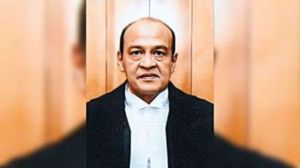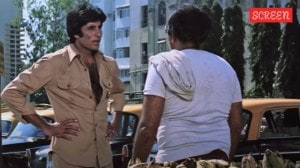Click here to follow Screen Digital on YouTube and stay updated with the latest from the world of cinema.
Adoor Bhasi: Malayalam cinema’s comedy virtuoso who became embroiled in #MeToo controversy decades after his death
Renowned for his comedic roles, Adoor Bhasi had an uncanny ability to light up audiences' faces whenever he appeared on screen — but his off-screen life told a different story.
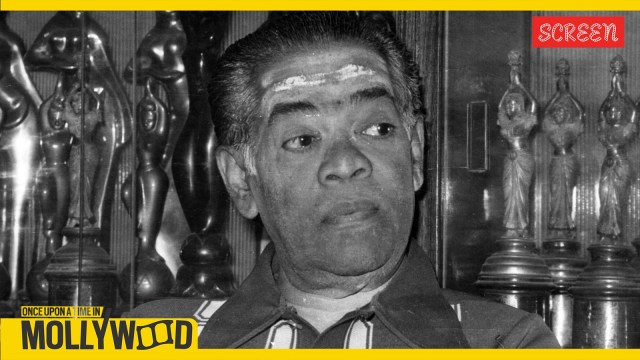 Adoor Bhasi was an indispensable figure in Malayalam cinema from the 1960s to the 1980s. (Express archive photo)
Adoor Bhasi was an indispensable figure in Malayalam cinema from the 1960s to the 1980s. (Express archive photo)There was a time, long before the era of Mohanlal and Mammootty, when the face of Malayalam cinema was Prem Nazir, often referred to as Nithyaharitha Nayakan (Evergreen Hero). With an unparalleled career that saw him play the lead in around 720 films — including two instances where he starred as the protagonist in 30 films in a single year — Nazir shared the screen with nearly 80 heroines. However, his most celebrated on-screen partnership was with Sheela; appearing in 130 films opposite each other, a feat that earned them a Guinness World Record for the longest screen partnership. If any other pairing came close to matching their popularity, it was Nazir and Adoor Bhasi. Ensuring that their films offered a guaranteed source of laughter, with Bhasi frequently cast as Nazir’s trusted sidekick, the duo became one of the most beloved on-screen pairs in Malayalam cinema.
Renowned for his comedic roles — particularly slapstick and exaggerated humour, with a distinct emphasis on expressions and dialogue delivery — Bhasi had an uncanny ability to light up audiences’ faces whenever he appeared on screen; but his off-screen life told a different story. Given that Malayalam films, like their counterparts in other Indian industries, often blended genres and featured mandatory comedy tracks (an early form of what would later be termed “masala films”), Bhasi became an indispensable presence in Malayalam cinema from the 1960s to the ’80s.
Cinema Anatomy | 5 years of Trance: Fahadh Faasil, Nazriya Nazim’s misfire on pseudo-prophets that showed how not to make an ‘Everything Everywhere All at Once’ film
Born as Bhaskaran Nair on March 1, 1929, to EV Krishna Pillai, a distinguished writer, satirist and member of the Sree Moolam Assembly of Travancore, and Maheshwari Amma, his maternal grandfather CV Raman Pillai was a pioneering figure in Malayalam literature, recognised as one of India’s foremost novelists and playwrights. After his father’s untimely passing, Bhaskaran, along with his mother and siblings, left the Rosscote Bungalow in Thiruvananthapuram — which his grandfather built — and relocated to Krishna Pillai’s native village of Peringanad in Adoor. He completed his schooling there before returning to Thiruvananthapuram for higher education and career opportunities. However, it was during this period that he found his way into the world of theatre, which ultimately led to his cinematic debut in 1953 with a minor role in Thiramala, starring Sathyan.
It was, however, his performance in director Ramu Kariat’s Mudiyanaya Puthran — penned by Thoppil Bhasi — that propelled him to fame, with his name being credited as “Adoor Bhasi”. He soon received the opportunity to work with Prem Nazir in Jnaanasundari (1961) and also won hearts with his performance. The film also featured comedian Bahadur in a key role and in several scenes, Bhasi shared the screen with him, showcasing their exceptional on-screen chemistry, which became iconic later. From Ninamaninja Kalpadukal, Thacholi Othenan, Bhargavi Nilayam, Porter Kunjali, Murappennu, Sthanarthi Saramma, Anarkali and Kalithozhan to Iruttinte Athmavu, Nagarame Nanni, Cochin Express, Yakshi, Lakshaprabhu, Asuravithu and Mooladhanam, Bhasi demonstrated his comedic prowess, excelling with impeccable timing and infusing a childlike innocence into his performances, in almost every film he appeared in.
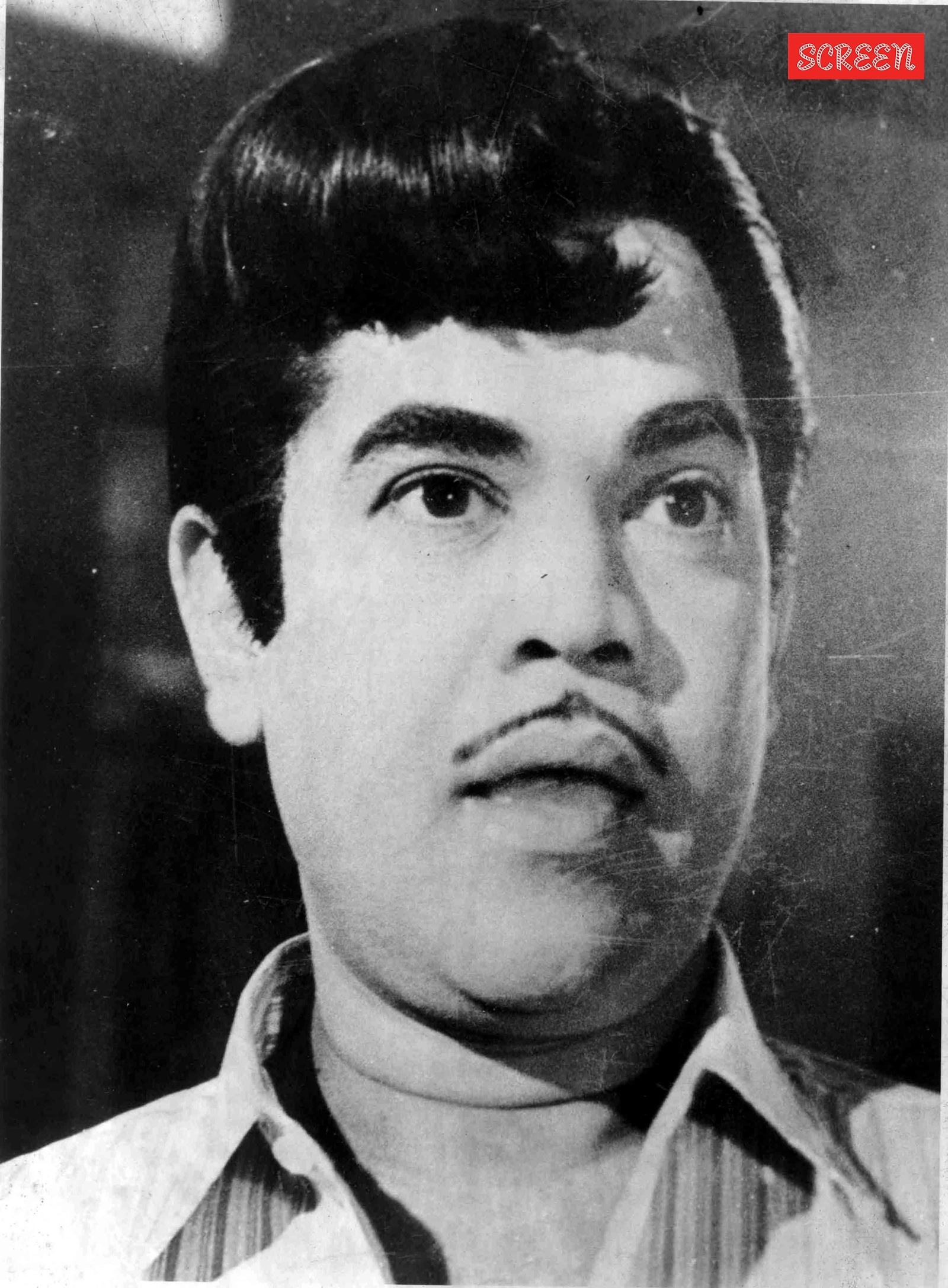 Adoor Bhasi was born as Bhaskaran Nair on March 1, 1929, to EV Krishna Pillai and Maheshwari Amma. (Express archive photo)
Adoor Bhasi was born as Bhaskaran Nair on March 1, 1929, to EV Krishna Pillai and Maheshwari Amma. (Express archive photo)
By the 1970s, he had become an indomitable figure in Malayalam cinema, frequently collaborating with leading stars, particularly Nazir, to create memorable films. During this era, he also ventured into playback singing, with tracks like “Oru Roopa Nottu Koduthal”, “Thallu Thallu Pannassu Vandi”, “Kuruvi Petti” and “Velutha Vaavinnum Makkalkkum” being some of his most popular ones.
Although audiences loved Bhasi in comedic roles, given how effortlessly he aced them, he also expanded his repertoire with nuanced and grey-shaded roles in films like Itha Oru Manushyan and Karimpana, both directed by IV Sasi. His versatility was further recognised when he won his first Kerala State Film Award for Best Actor for his portrayal of Morris, an Anglo-Indian loco pilot, in KS Sethumadhavan’s Chattakkari (1974). His performances in films such as Lottery Ticket, Cross Belt, Oru Penninte Katha, Anubhavangal Paalichakal, CID Nazir, Taxi Car, Punarjanmam, Aromalunni, Picnic, Alibabayum 41 Kallanmaarum, Kadathanaattu Maakkam, Allauddinum Albhutha Vilakkum, Ormakkayi and April 18 further cemented his place in the industry. He also bagged a Kerala State Film Award for Second Best Actor for his role in the movie April 18.
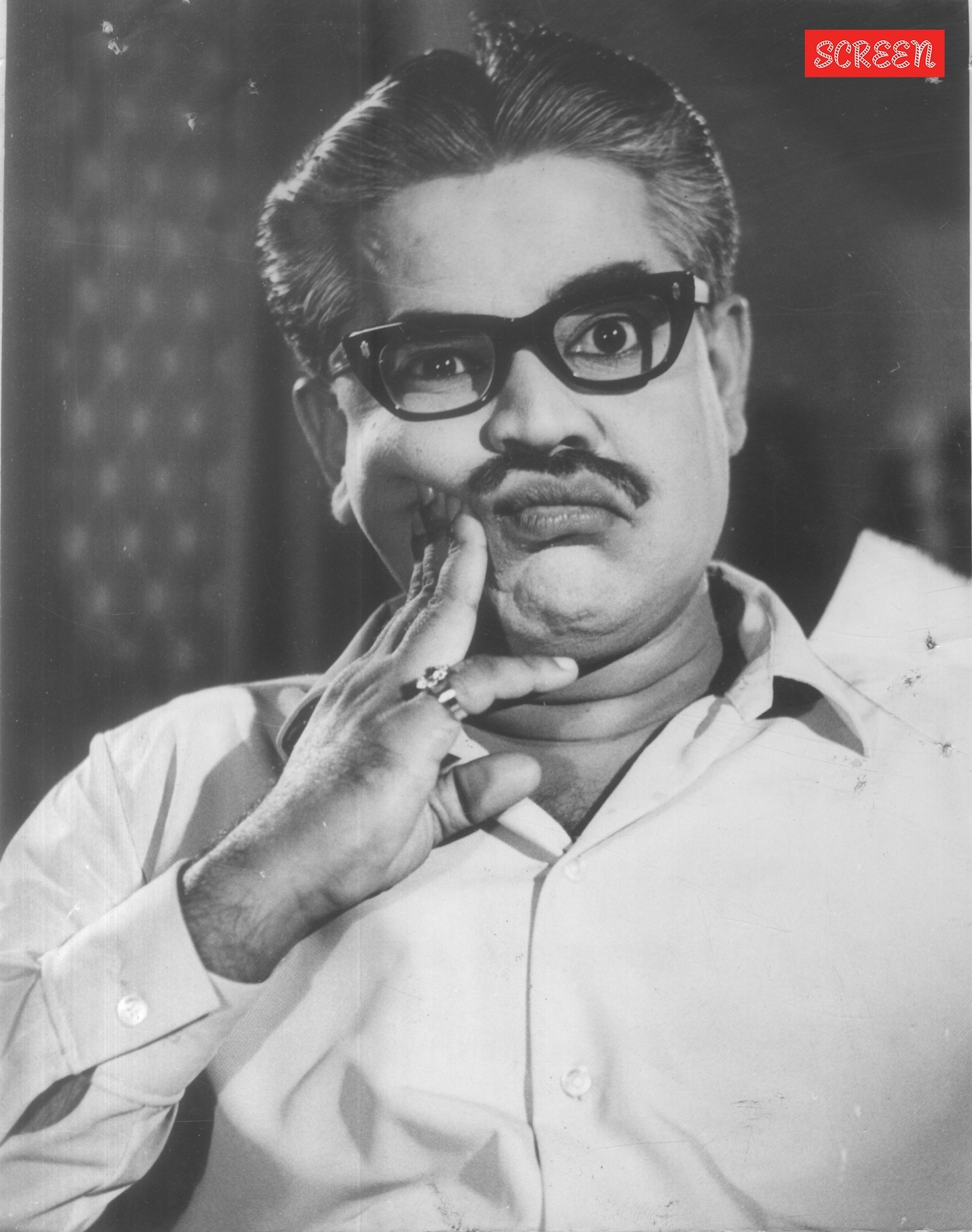 By the 1970s, Adoor Bhasi had become an indomitable figure in Malayalam cinema. (Express archive photo)
By the 1970s, Adoor Bhasi had become an indomitable figure in Malayalam cinema. (Express archive photo)
During the late ’70s, Bhasi expanded into filmmaking, helming three movies: Aadhya Paadam (1977), starring Kamal Haasan and Sridevi; Achaaram Ammini Osharam Omana (1977), featuring Sheela, Prem Nazir and Jayan; and Raghuvamsham (1978), with Sharada in the lead. Around this time, his performance in legendary filmmaker John Abraham’s politically charged Cheriyachante Kroorakrithyangal (1979) earned him his second Kerala State Film Award for Best Actor, further showcasing his ability to take on complex roles.
Even during the later part of his career, he impressed audiences with mature roles in films such as Aalkkoottathil Thaniye, Yathra, Pacha Velicham, Sarvakalasala, Irupatham Noottandu and Bhoomiyile Rajakkanmar, which had more depth than his usual comedic characters. Towards the end of his life, Bhasi gradually stepped away from films due to health issues, with his last film being Ragam Anuragam (1991), released posthumously after his passing on March 29, 1990. He was a lifelong bachelor.
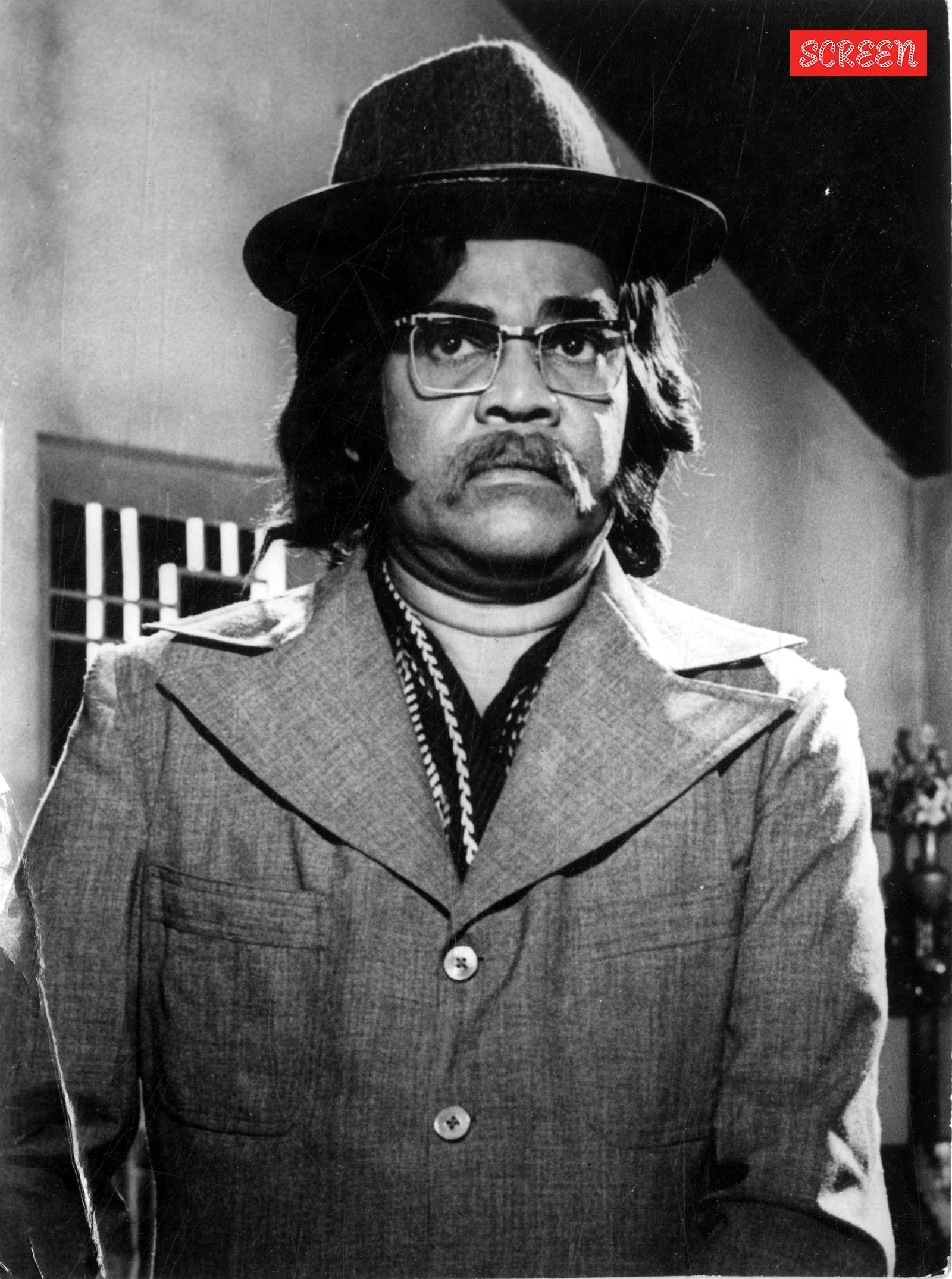 Adoor Bhasi won the Kerala State Film Award for Best Actor twice, for his performances in Chattakkari and Cheriyachante Kroorakrithyangal. (Express archive photo)
Adoor Bhasi won the Kerala State Film Award for Best Actor twice, for his performances in Chattakkari and Cheriyachante Kroorakrithyangal. (Express archive photo)
In his memoir, legendary actor Marlon Brando described comedic genius and veteran filmmaker Charlie Chaplin — who directed him in A Countess from Hong Kong (1967) — as the most sadistic man he had ever encountered. Describing Chaplin as “an egotistical tyrant and a penny-pincher,” Brando reportedly wrote, “Comic genius or not, when I went to London to work with him late in his life, Chaplin was a fearsomely cruel man.”
Similar, albeit even graver, were the allegations raised by legendary Malayalam actor KPAC Lalitha against Adoor Bhasi. Accusing him of making her life unbearable as she refused to comply with his demands, she once even went so far as to call him “a leech that refused to let her go”. In an interview with a news channel — at the height of the #MeToo movement — she referred to Bhasi as her “biggest enemy”.
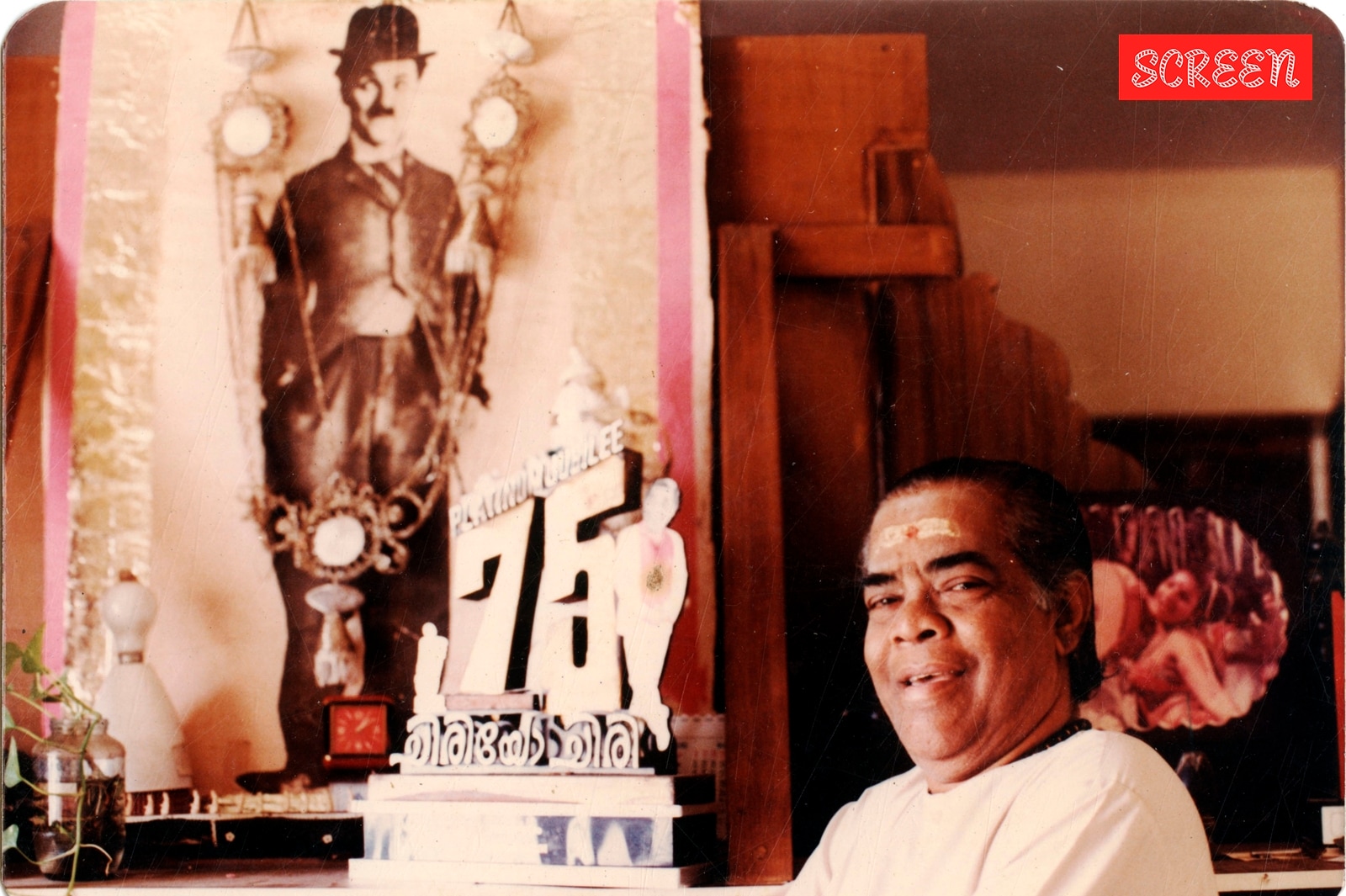 Adoor Bhasi in front of a portrait of comedic genius and veteran filmmaker Charlie Chaplin. (Express archive photo)
Adoor Bhasi in front of a portrait of comedic genius and veteran filmmaker Charlie Chaplin. (Express archive photo)
Lalitha also recalled a harrowing incident in which Bhasi, brought there in a car by his driver, barged into her home in Madras (now Chennai) with two bottles of liquor and began drinking without her consent. This took place while they were working on Thoppil Bhasi’s Madhavikutty (1973). At the time, she was home with only her younger brother and a female helper. Alarmed by the situation, the three of them retreated to the courtyard. As the night progressed, Bhasi became heavily intoxicated, his clothes dishevelled completely and he eventually collapsed throwing up.
“This happened during an era when he wielded absolute power over the Malayalam film industry. I don’t think even Nazir sir had that level of influence. Bhasi’s word was final. I lost many roles simply because I refused to submit to his demands,” she alleged. According to Lalitha, it was actor Bahadur, living nearby, who ultimately came to her rescue. After Bhasi passed out around 4 am, she sought Bahadur’s help and he promptly stepped in, ensuring Bhasi was placed in his car and sent home with his driver.
Although she eventually filed an official complaint with the Malayala Chalachitra Parishad — a once-powerful socio-cultural and welfare organisation for Malayalam film industry professionals in Madras — it went unresolved. Recalling Bhasi attempting to have her removed from Adimakkachavadam (1978) too, she shared that director Hariharan, however, stood firm and rearranged the cast so that she would not have to be paired with Bhasi.
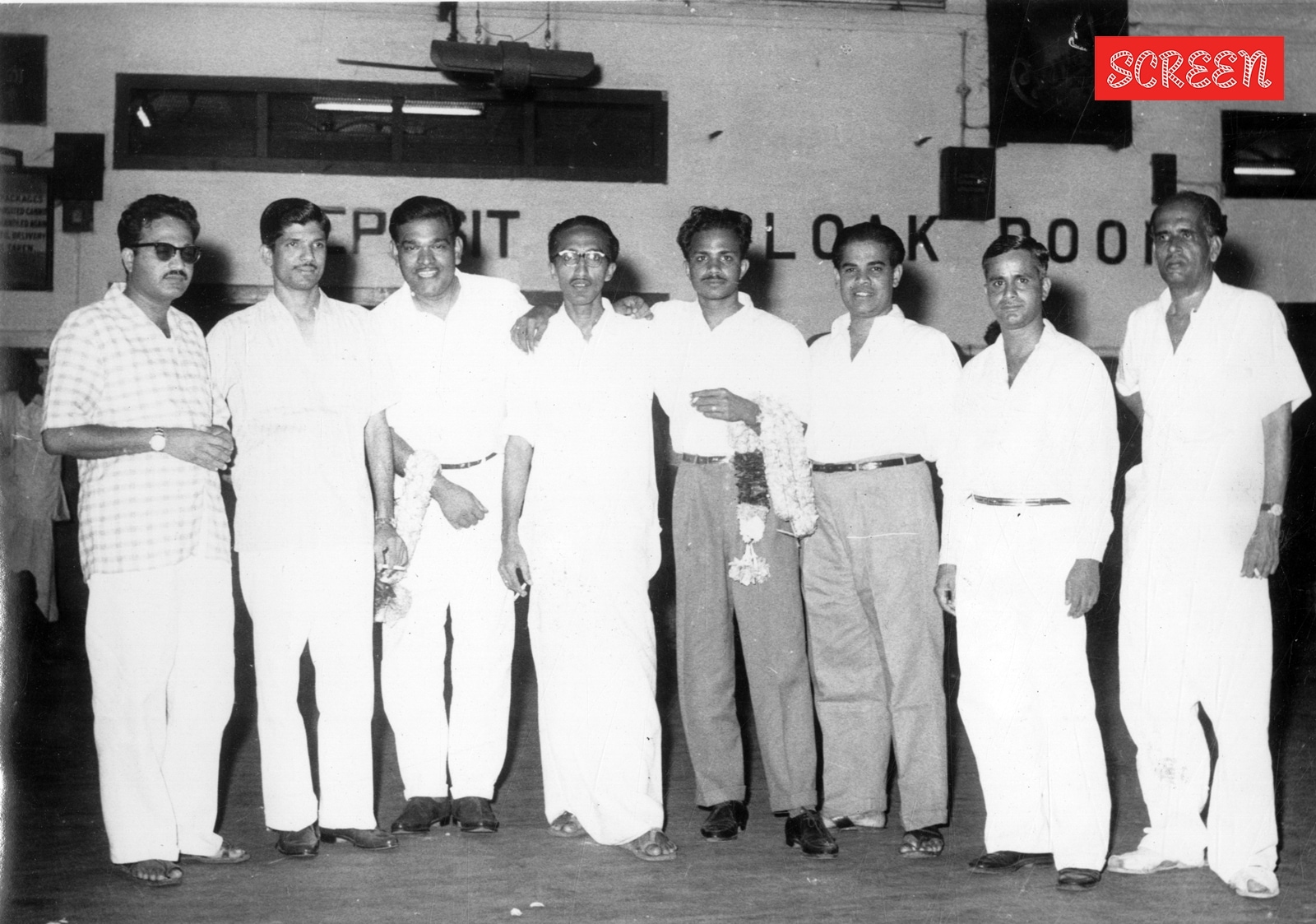 (L-R) Cinematographer-director A Vincent, RS Prabhu of Chandrathara Productions, filmmaker Ramu Kariat, producer K Parameswaran Nair, author-filmmaker MT Vasudevan Nair, Adoor Bhasi, film distributor Chandran and writer K Padmanabhan Nair. (Express archive photo)
(L-R) Cinematographer-director A Vincent, RS Prabhu of Chandrathara Productions, filmmaker Ramu Kariat, producer K Parameswaran Nair, author-filmmaker MT Vasudevan Nair, Adoor Bhasi, film distributor Chandran and writer K Padmanabhan Nair. (Express archive photo)
Frustrated by the persistent harassment, Lalitha sought Hariharan’s support in filing a complaint with the Chalachitra Parishad. “When I asked if he would sign my petition supporting my claims, Hariharan sir agreed without hesitation. The producer of Adimakkachavadam also signed it; something few would have dared to do. I detailed in my complaint how Bhasi was making my life intolerable and harassing me relentlessly. At the time, actor KP Ummer was the head of the organisation. Soon, I received a call from him, asking, ‘Who are you to complain against Adoor Bhasi? He is like a reigner here. Who are you?’ I told him the situation had become unbearable and asked if the organisation could intervene. ‘There is nothing we can do,’ his response was immediate. ”This is what happens when spineless people lead organisations. I will do what I can,’ I retorted bravely,” she added.
Though actors like Kaviyoor Ponnamma later expressed scepticism regarding the allegations, refusing to believe that ‘Bhasi would do such things’, Lalitha’s accusations were difficult to dismiss, particularly since she named key people who were aware of her ordeal, lending credibility to her claims and making them impossible to ignore.


Photos
Photos


- 01
- 02
- 03
- 04
- 05















